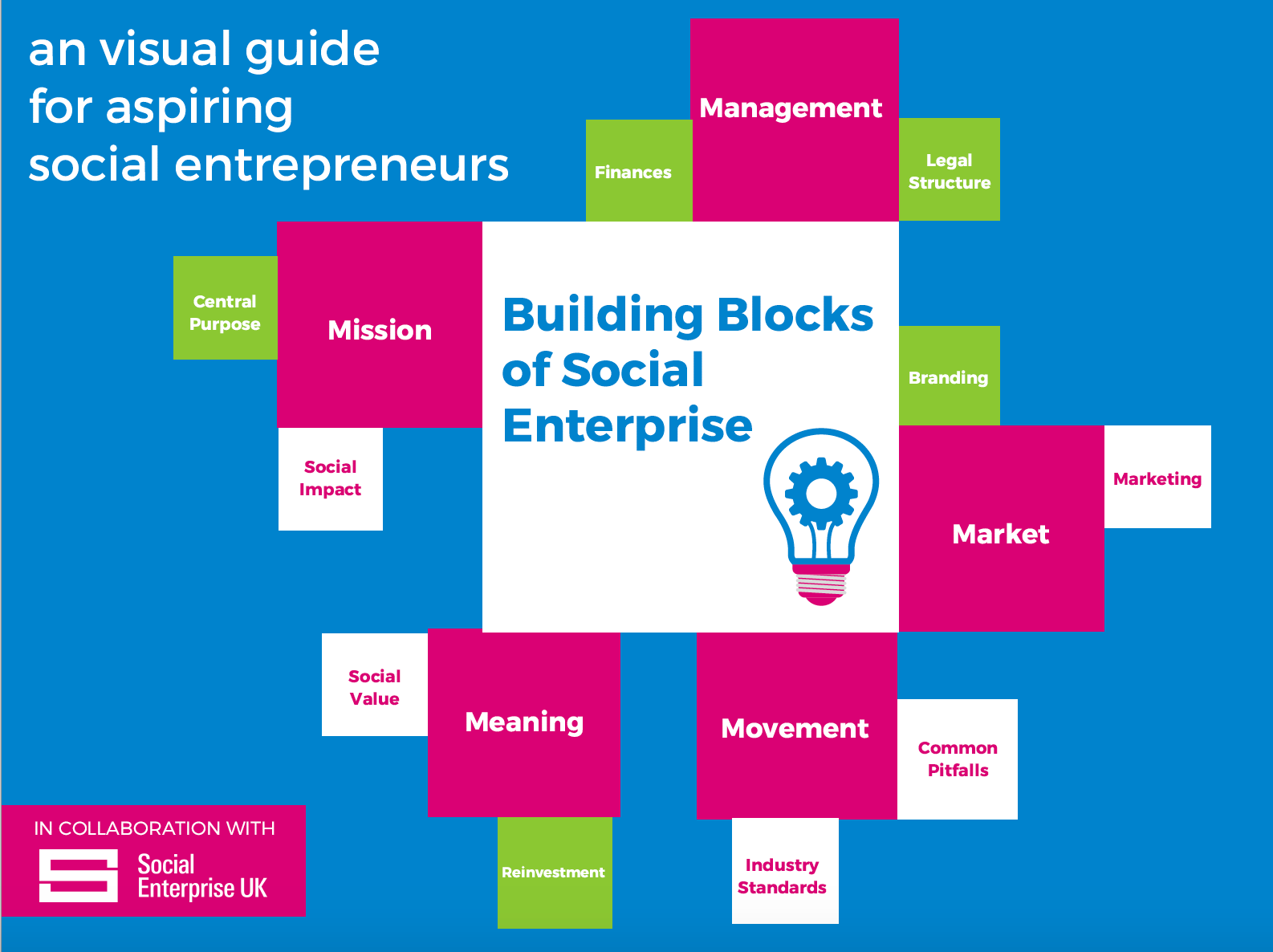
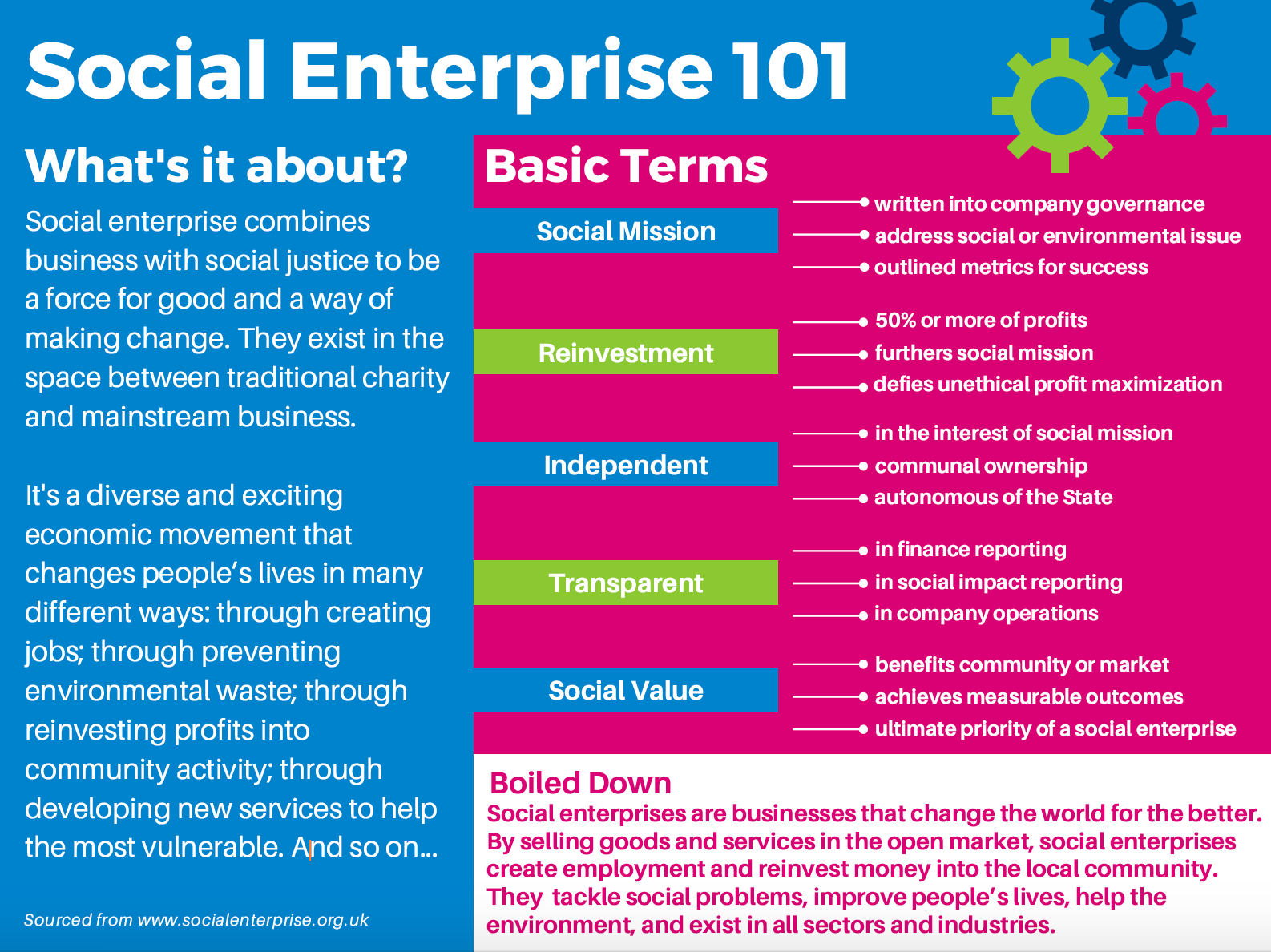
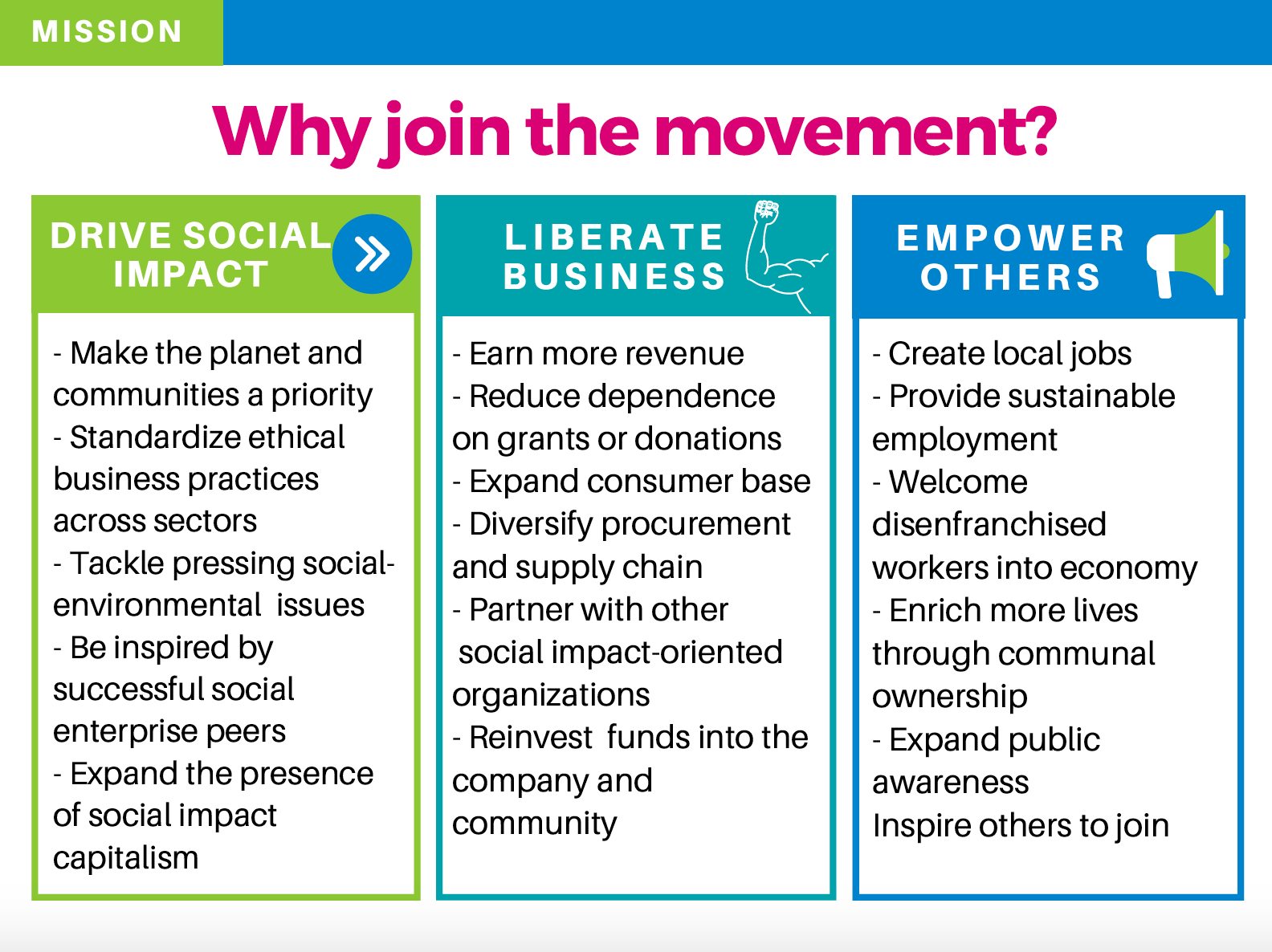
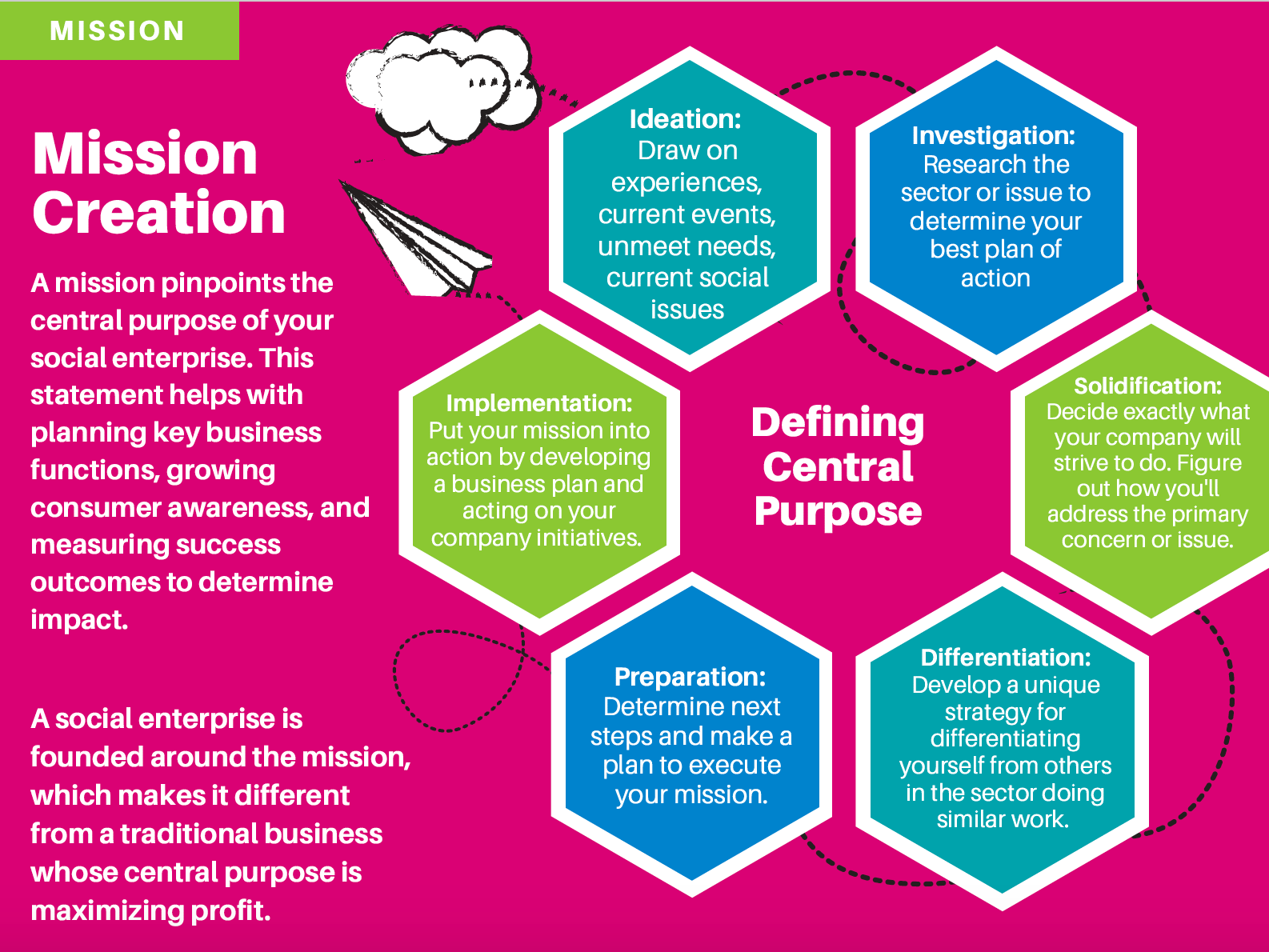
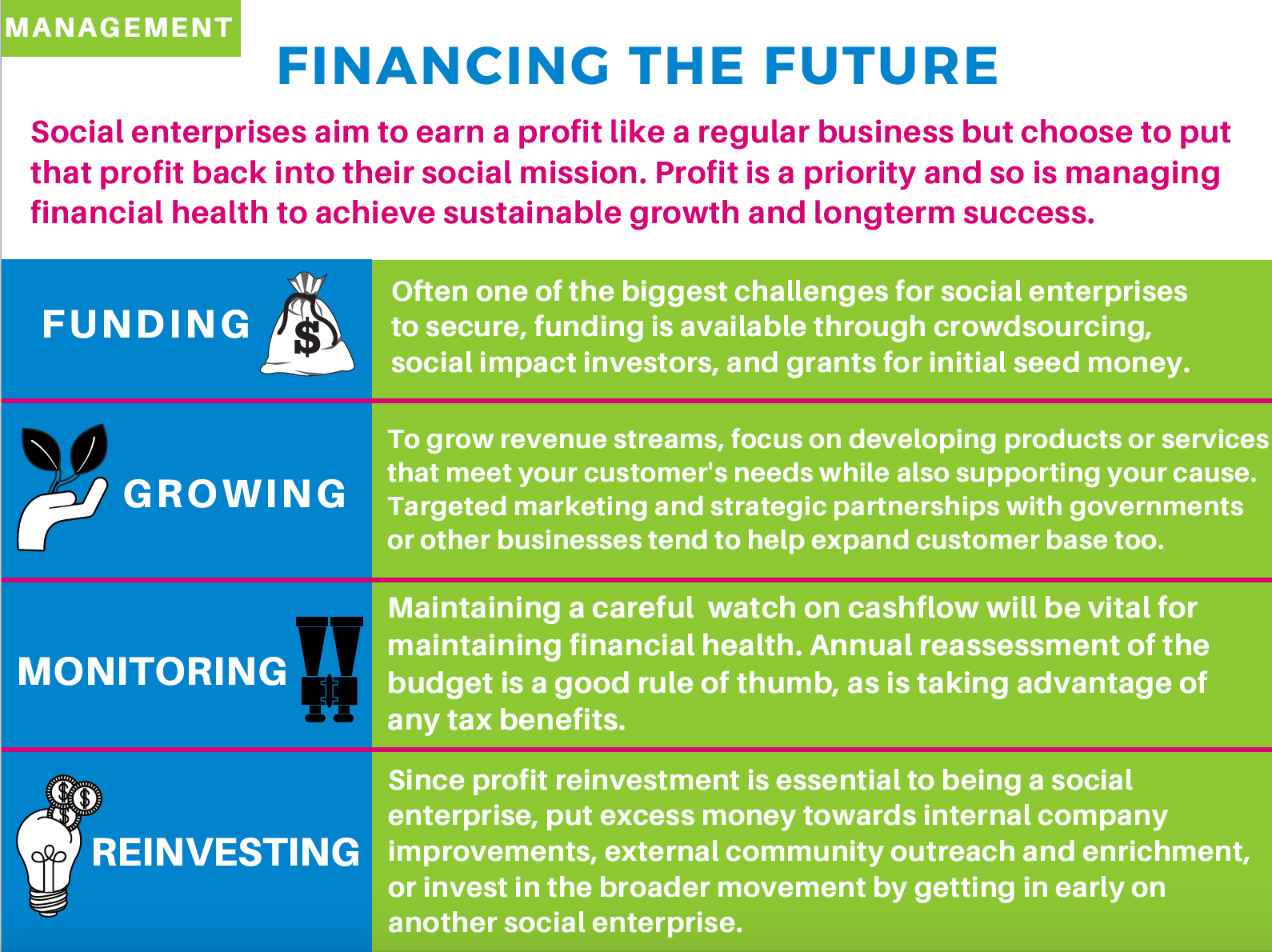
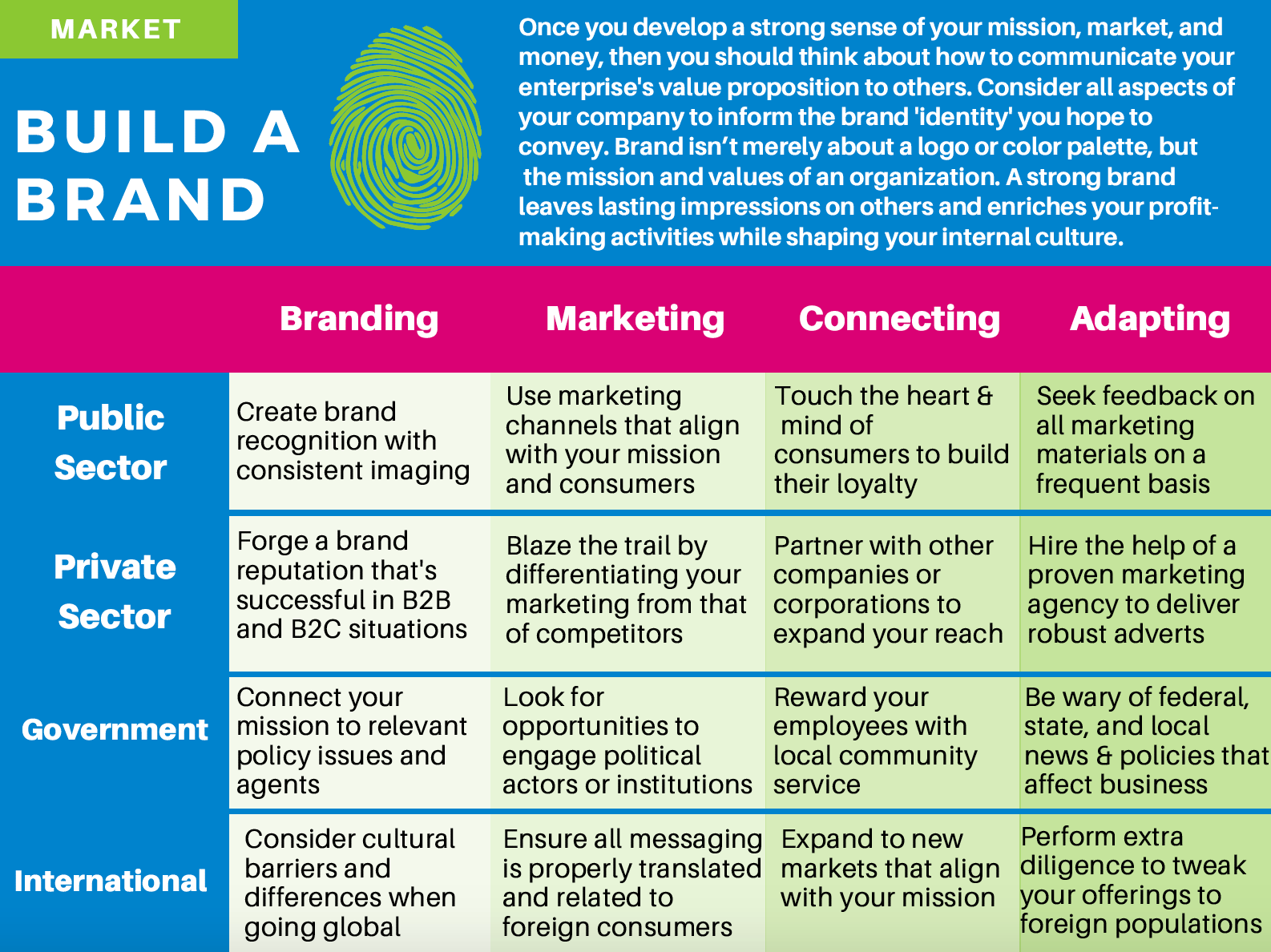
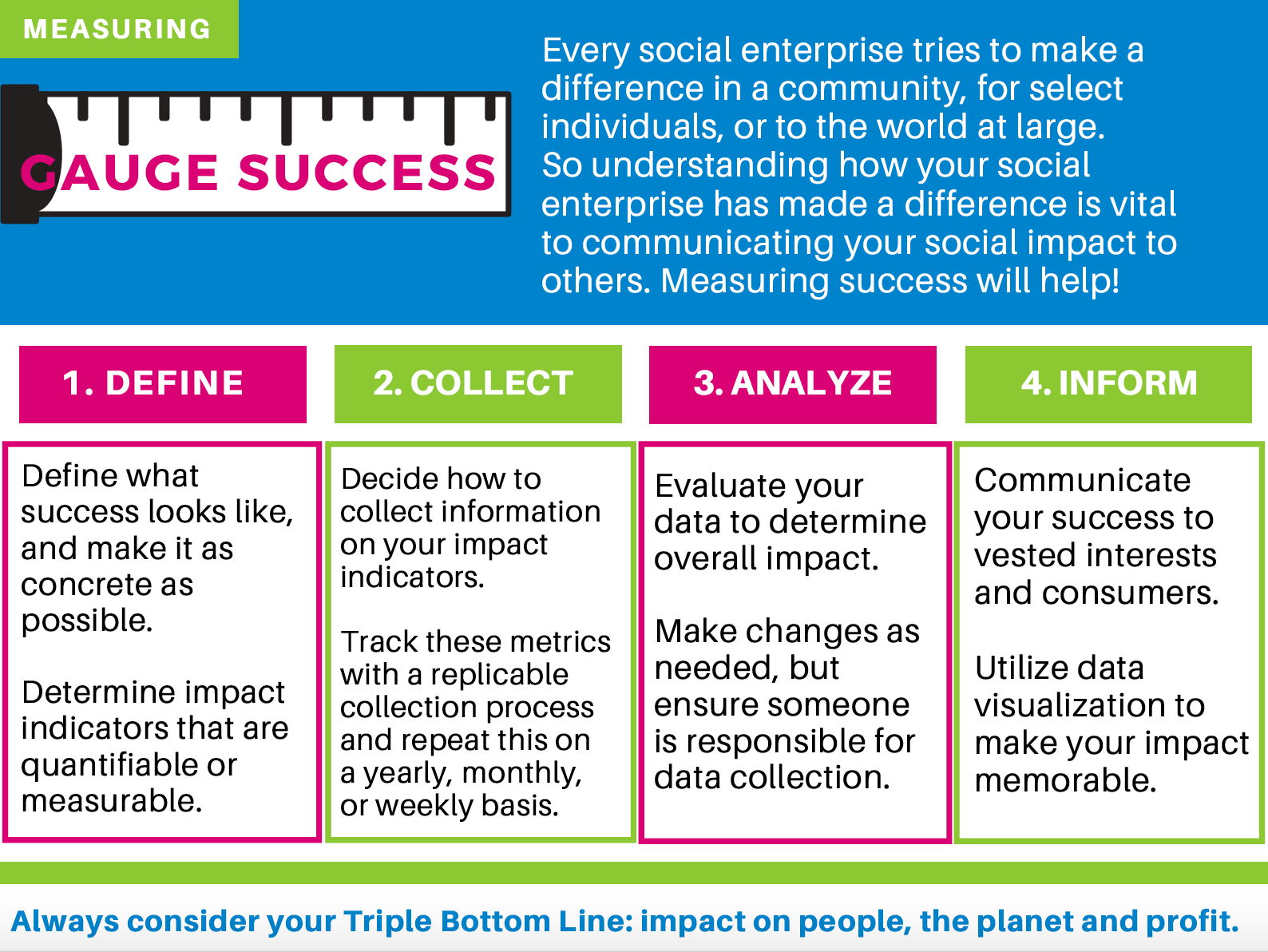

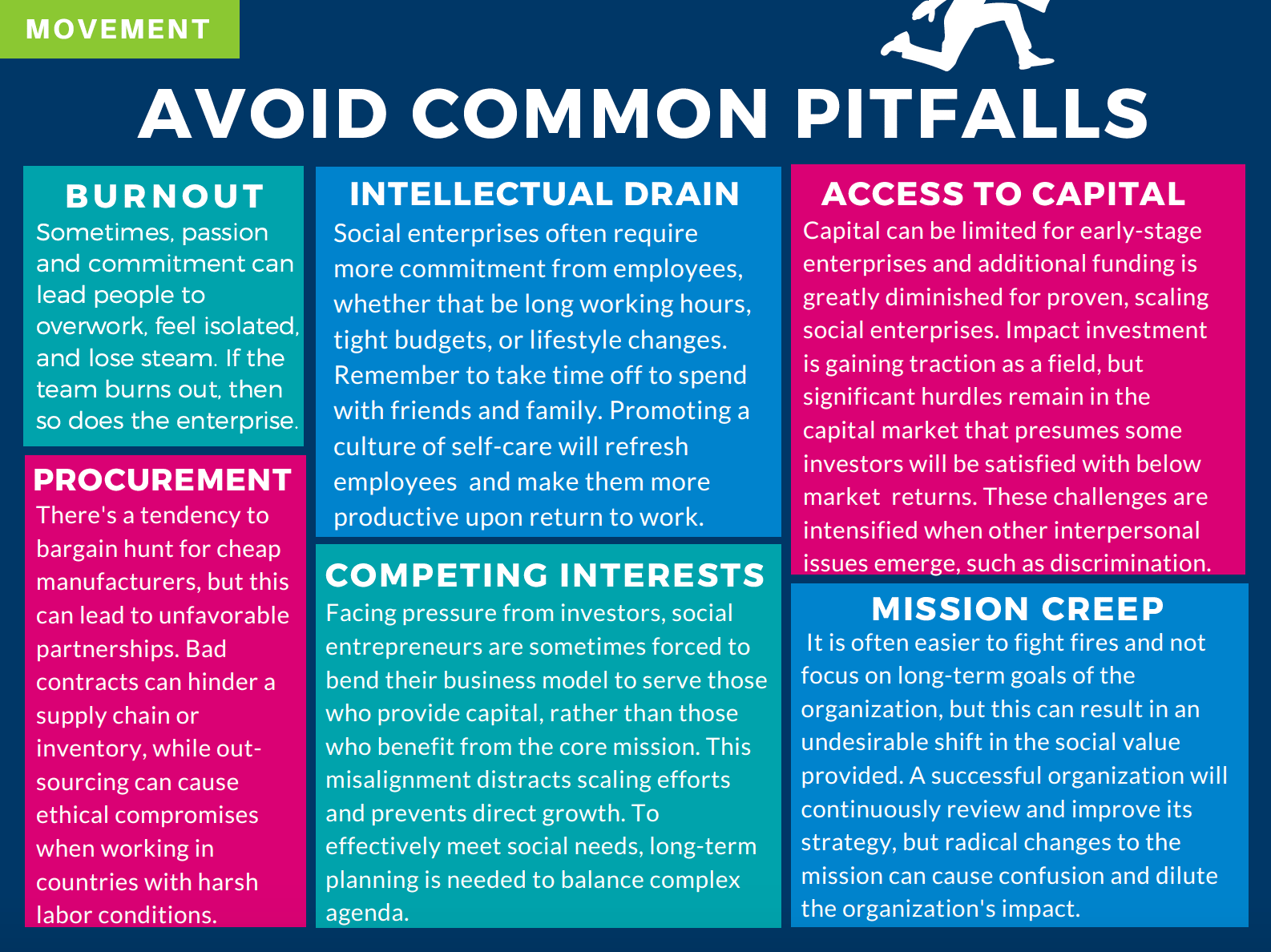
My time at SEUK exposed me to the growing world of impact-oriented businesses that balance their profit generation with social impact creation. Of the many projects I worked on, one sticks out as the most rewarding and creatively intriguing. My supervisor asked me to consolidate my learnings into a comprehensive guide for aspiring social entrepreneurs to reference on SEUK's website when starting a social-impact business. Through qualitative interviews, research and first-hand exposure to the field, I compiled information on social entrepreneurship's core principles, best practices, and successful strategies, then assembled my findings into a succinct visual guide for hopeful social entrepreneurs to use. While at SEUK, I gained a comprehensive understanding of this economic sector and finished my internship with an evolved perspective on modern capitalism; I fervently believe that conducting commerce in a responsible, sustainable, collectively beneficial way is an essential competitive edge for companies to achieve success in the 21st century.
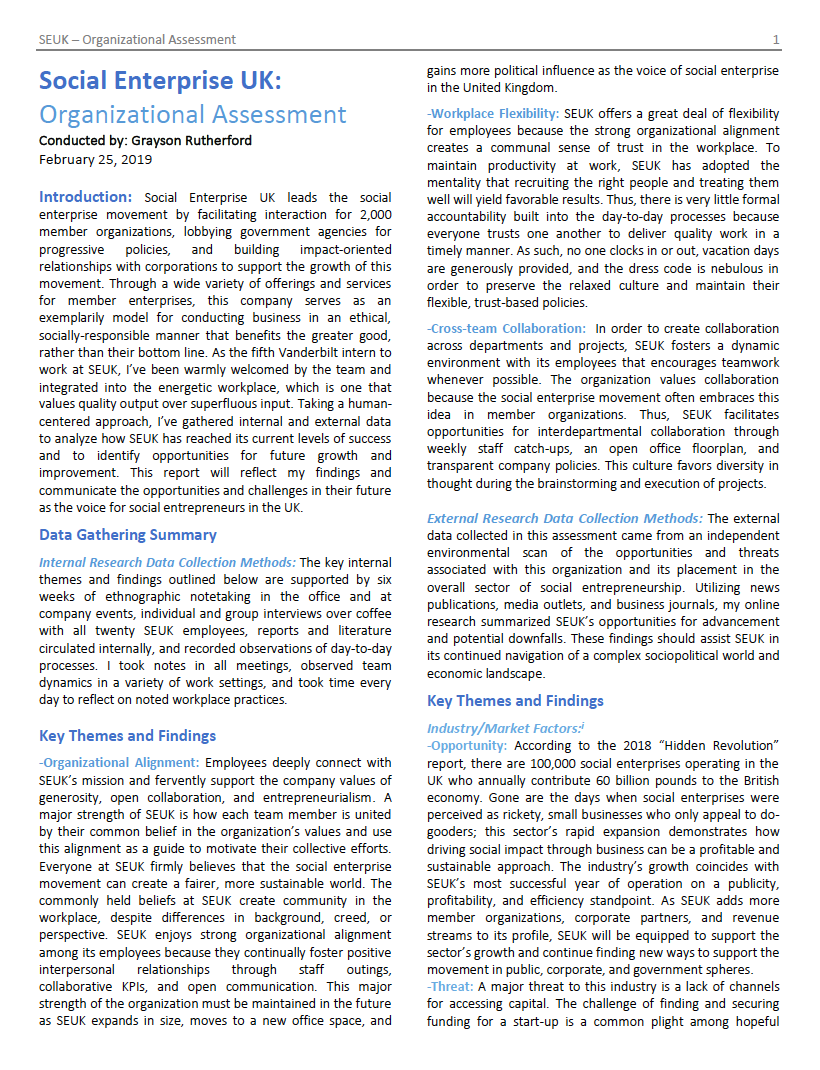
Organizational analysis I conducted to improve SEUK processes
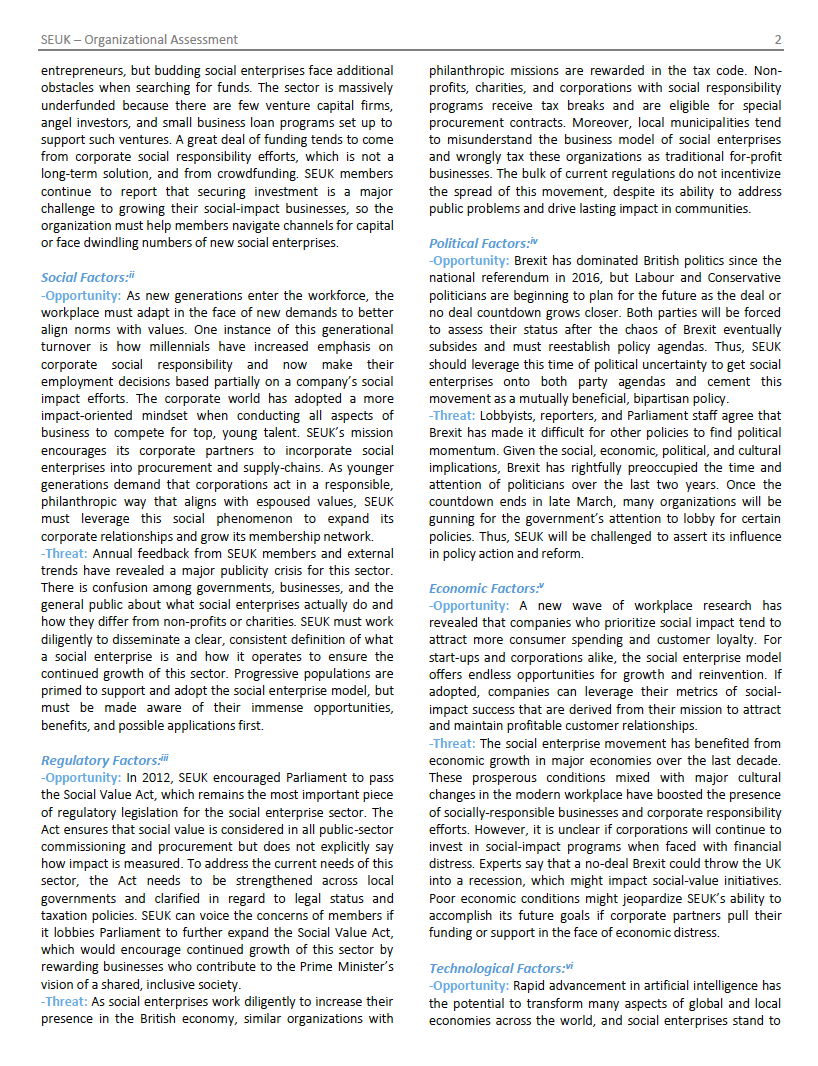

Implications for branding & creative strategy?
The 21st century has produced major changes to how people buy, shop, and eat all over the world as a result of advancing technology. Empowered by widely accessible internet and the emergence of social media, consumers are able to access more information on what they purchase and who they purchase from. Moreover, climate change threatens the sustainability and productivity of many popular consumer products and services, such as food, cosmetics, and clothing. Hence, the rise of responsible consumerism has exploded in recent years as customers demand more for their dollar.
An increasing sect of consumers expect high-quality, sustainably sourced goods from companies who treat their workers well and do genuine good for communities. Socially-conscious consumerism has nurtured the growth of social enterprises, corporate social responsibility efforts, and ethical modifications to capitalist practices. From a brand perspective, communicating the social good that a company does is now more important than ever. Not only should branding be central to a company’s mission and internal culture, but a cohesive, authentic expression of a brand is critical for winning the business of environmentally, politically, or socially-conscious consumers. As more companies seek to reap the benefits of this trend and jump on the bandwagon, then creative, distinctive branding will be even more imperative for conveying a genuine message to consumers that differentiates a company from competitors. The rise of consumers who crave social responsibility in their purchases has fueled the continued need for agile, innovative marketing.
